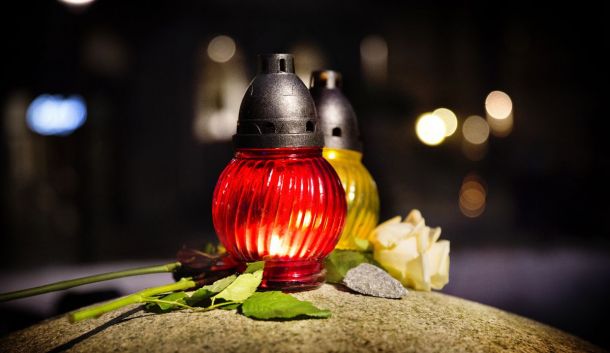Today is Holocaust Memorial Day – this year’s theme is “Don’t Stand By.” Following are some reflections and commentary on the day.
Justin Welby, Archbishop of Canterbury, speaks to our shared responsibility as accomplices in both evil and good in his message:
Holocaust Memorial Day compels us to confront the reality of our capacity to commit evil against one another. It is also a searing indictment of our collusion in the evil of others through our silence.
The theme for this year’s Holocaust Memorial Day is Don’t Stand by. It’s a call not just to remember, but to act. But in order to act, we must remember. Remembering enables us to see that the Holocaust did not happen suddenly and it did not happen through the acts of a few. It happened through the silent collaboration of the many.
It’s never been acceptable to claim that we don’t know because we can’t see. We cannot walk on by on the other side oblivious to the needs of our neighbours.
In the world we inhabit, the searchlight of an active media illuminates the dark recesses of the caricature, simplistic criticism and ridicule that leads inexorably to the dehumanising and degrading treatment of others. History shows clearly that, unopposed, this can lead to violent persecution and genocide.
In Time magazine, David Wolpe, the Max Webb Senior Rabbi of Sinai Temple in Los Angeles, also addresses shared responsibility, in preserving the memories of those who endured the Holocaust:
Today, on Holocaust Memorial Day, we remember how little we remember. Despite the many movies, books and survivor testimonies, there are the countless stories that have been lost and there are all the non-transmissible sensations. One who was not there can never know what it felt like to be there.
As the number of Holocaust survivors diminishes, we continue to seek ways to express the horror and the effects of focused evil. But even now it is hard to imagine the very premise of the Holocaust: that a culture as advanced as any in the world determined to slaughter every member of a group in its midst simply because that group existed, and that everywhere it conquered it found willing allies in the massacre.
So we read individual diaries like that of Anne Frank to remind ourselves of the potential that was erased, or Elie Wiesel’s Night to absorb the almost mystically demonic atmosphere of the camps, or we watch Schindler’s List to encourage ourselves with the heroic goodness that occasionally flourished. And in the end, we are left having learned and having felt, but without knowing what it was like.
Image by Thomas Karlsson, Holocaust Memorial Day, Raoul Wallenbergs Square in Stockholm, 27 January 2015, HolocaustRemembrance.com

